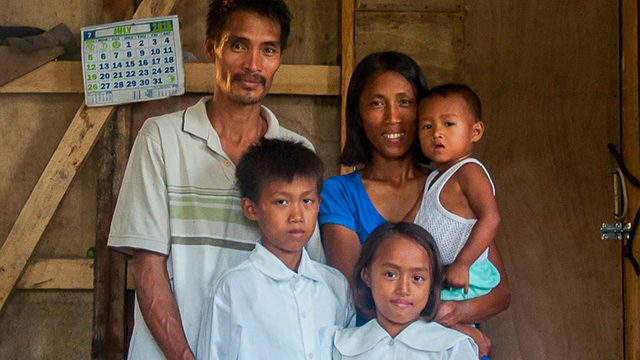SUMMARY
This is AI generated summarization, which may have errors. For context, always refer to the full article.

MANILA, Philippines – Wise beyond her years, 12-year-old Melcha dreams big not just for herself but also for her family. However, poverty continues to be an obstacle.
In their household, food is often just a small piece of fish, soup, and rice. Sometimes, they only get to eat fresh fish when there’s extra money. To at least “improve the taste,” vetsin is usually added to the otherwise bland meal despite health risks.
Melcha’s mother is aware that her children aren’t getting the right nutrients and they often get sick because they’re not well-nourished. However, poverty prevents them from improving their lives.
“I know this is unhealthy, but what else can I do, the children won’t eat? We have no money for meat,” she said in Filipino. “I am aware they get sick because they are not nourished enough. I can’t buy vitamins for them yet as we don’t have enough money.”
This is the harsh reality of many Filipinos today and as the 2016 elections near, Save the Children calls for immediate and heightened action against child malnutrition.
Entitled “Lahat Dapat,” the campaign seeks to enlighten stakeholders – government, civil society organizations, and the public – on the importance of leaving no child behind when it comes to progress as a nation.
The reported economic growth in the Philippines, Save the Children country director Ned Olney said, does not reflect improvements on poverty and malnutrition among Filipinos.
“There is disparity in economic growth and progress in nutrition in this country so if we are to progress as a nation, so must all of our children,” he emphasized. “We need to have a national discussion.”
Save the Children calls for nutrition to be prioritized and be a centerpiece in the electoral campaigns of 2016 aspirants. Future leaders – both local and national – should aim to champion and carry on the fight against child malnutrition and ultimately, poverty.

End poverty, end malnutrition
The latest National Nutrition Survey (NNS) results of the Food and Nutrition Research Institute (FNRI) show that two out of 10 children under 5 years old are underweight, while 3 out of 10 are too small for their age – or stunted, an indication of chronic malnutrition.
The 1st quarter 2015 Social Weather Stations (SWS) survey found that around 7.9 million Filipino families are food-poor. This means that they do not have enough money to buy food. Meanwhile, the Food Consumption Survey of FNRI found that 7 in 10 households do not get the right amount of nutrients.
Breaking the inter-generational cycle of malnutrition, according to Olney, requires ending the same cycle of poverty.
“Poverty creates malnutrition and malnutrition keeps people in poverty,” he stressed. “We have not seen poverty really going down so these poor families are where the malnourished children come from.”
The existence of poverty worsens malnutrition conditions in the Philippines. The NNS results showed that malnourishment largely affects children in poor households or communities.
The lack of resources from their end hinders them from getting the right nutrients. (READ: Is the minimum wage enough for a day’s worth of nutritious meals?)
To ultimately see the end of the cycle, government should find ways to eventually promote inclusive growth.
“We have to come up with broad economic policies to look at how to reduce poverty and how to get more families to enjoy the economic progress the country is enjoying at large,” Olney said.
However, these policies should be sustainable enough and be given right budget allocations. It is also important, he added, that anti-poverty programs are implemented well while providing the needs of those burdened.
“We need to ensure that there’s a greater level of resources that get to these poor families,” Olney said.
Collaboration is key
Save the Children, through its latest campaign, calls for commitment not just from the government but also from the public to “exhaust all means to ensure children get the right nutrition they deserve.”
Hunger and malnutrition, the group added, is really everyone’s business. Strong support can definitely ensure no one suffers from the irreversible effects of these problems.
“Get people involved in pushing for sustainable solutions,” Olney said. “We need to raise public awareness about the very alarming situation in the country.” – Rappler.com
To know more about how to participate in the Save the Children campaign, please visit the Lahat Dapat website.
Ending malnutrition and hunger is part of the 17 Global Goals! How can the Philippines achieve this by 2030? Join the conversation at Rappler’s Innovation +Social Good! Register here.
Add a comment
How does this make you feel?





There are no comments yet. Add your comment to start the conversation.